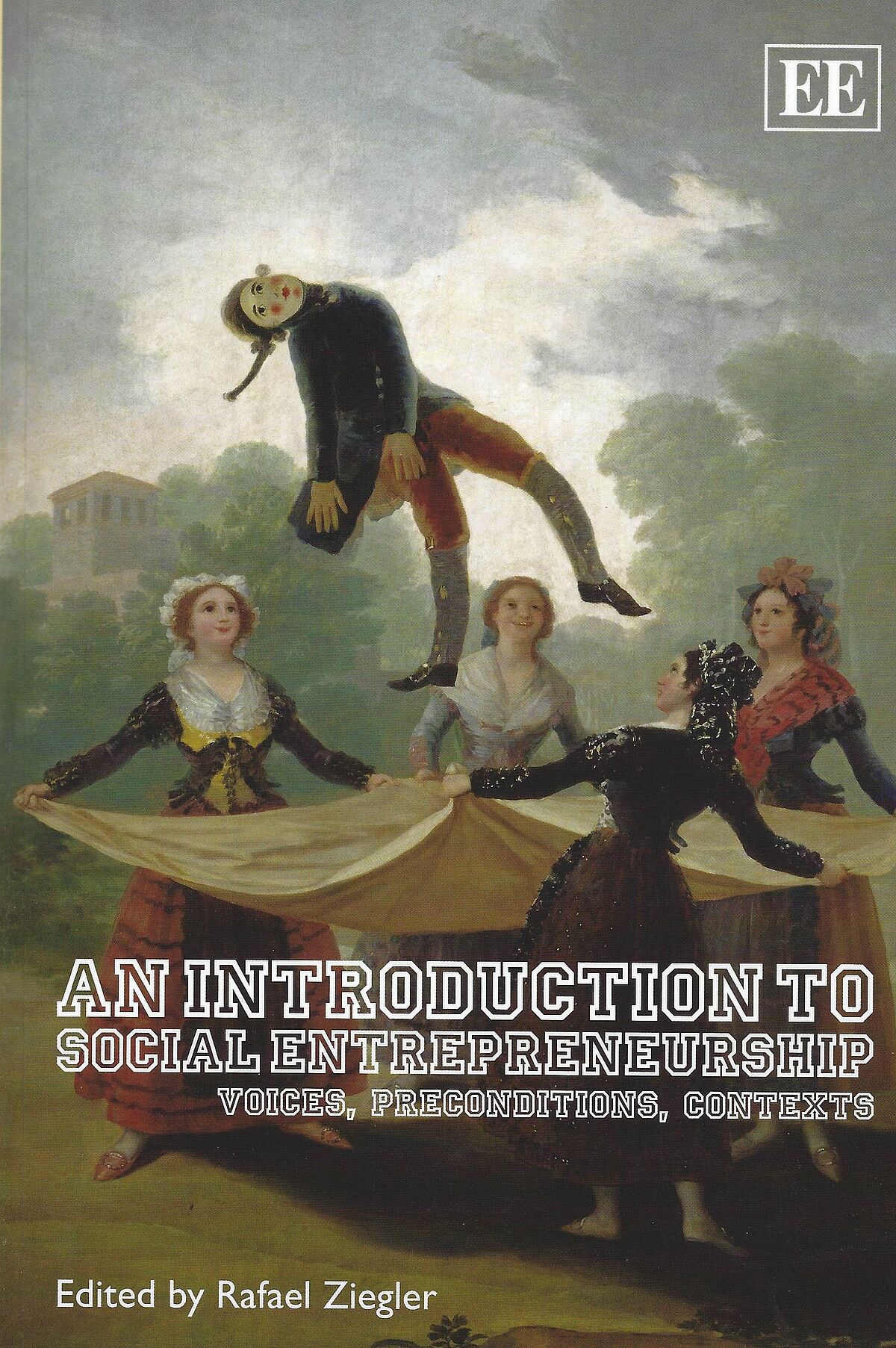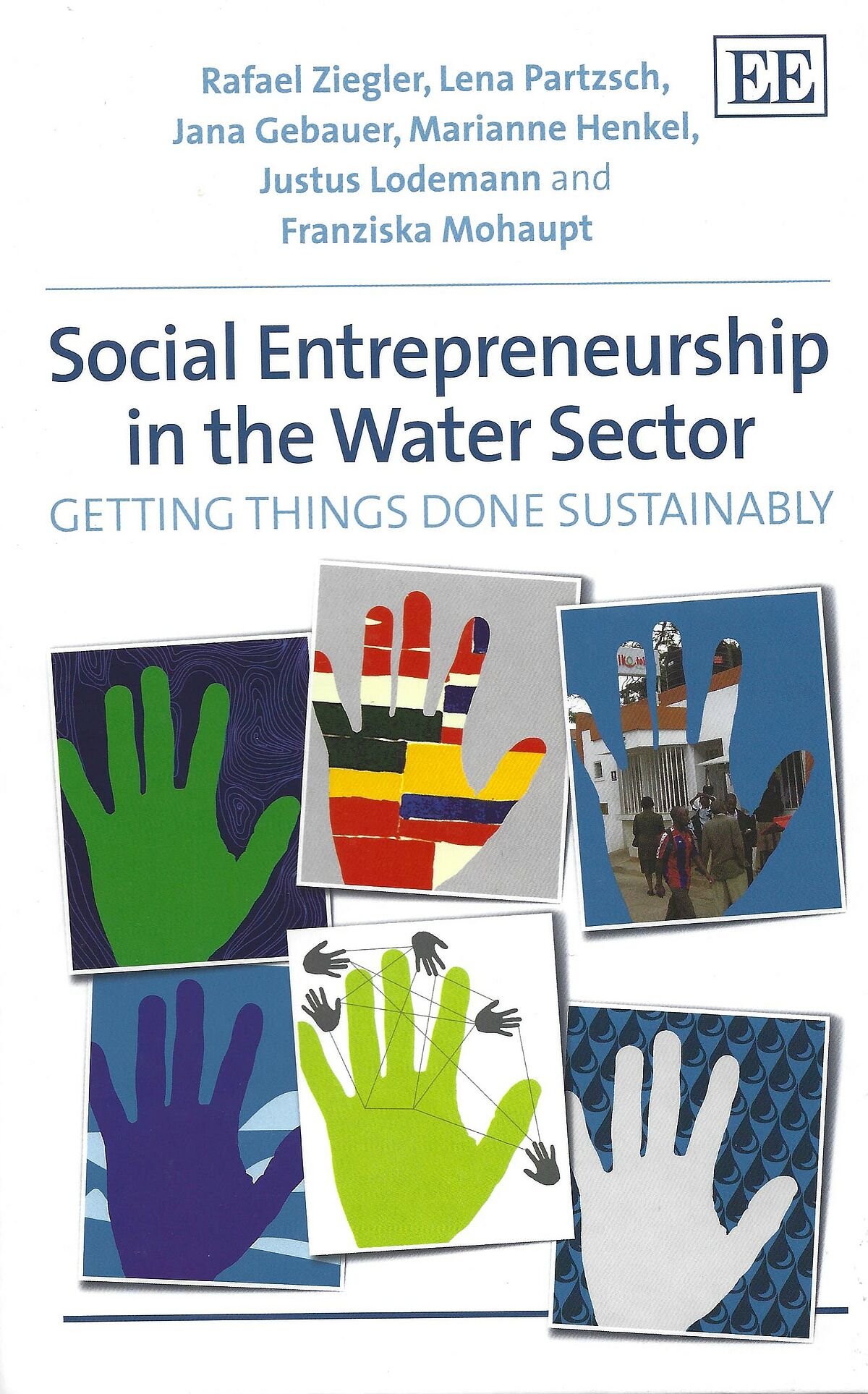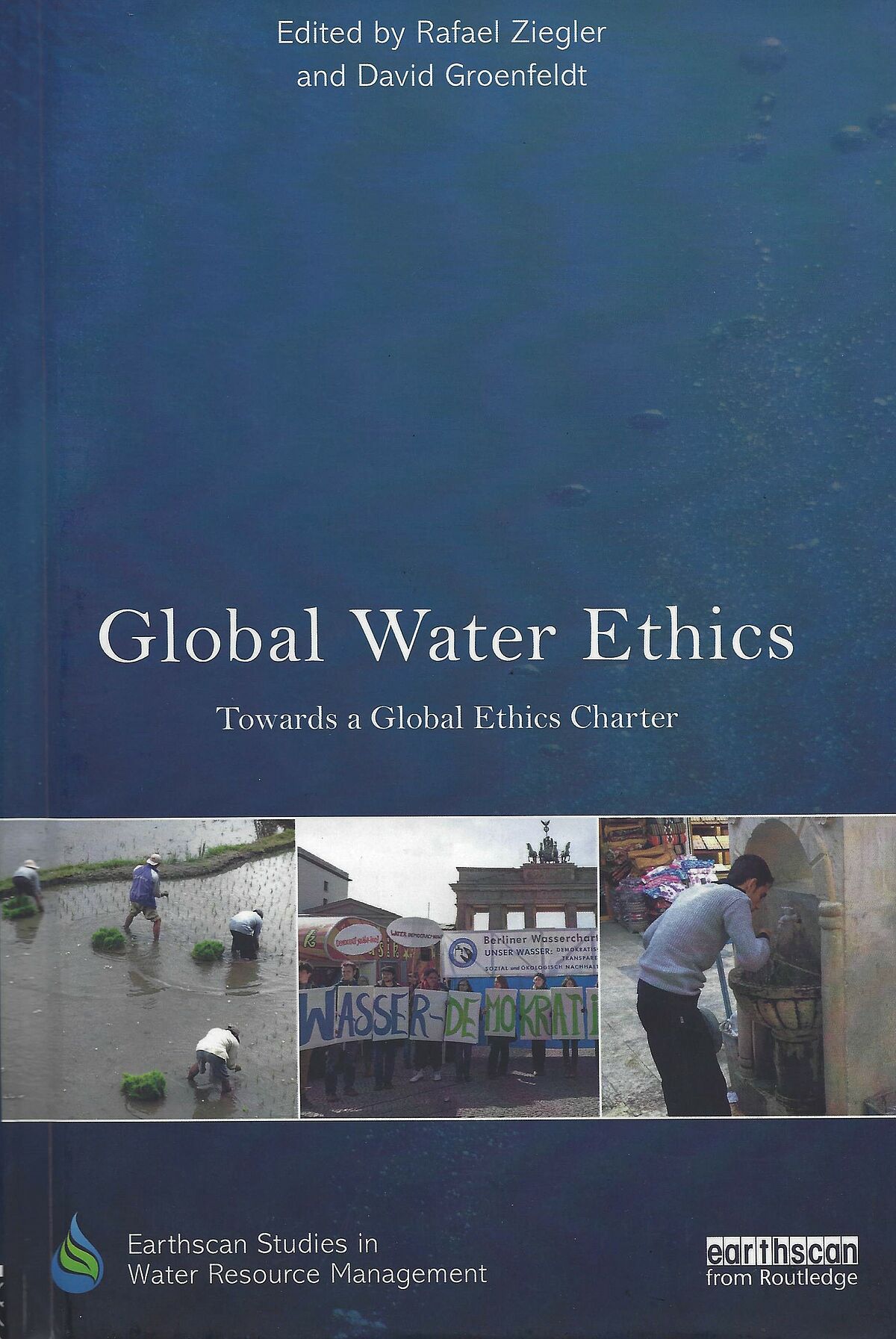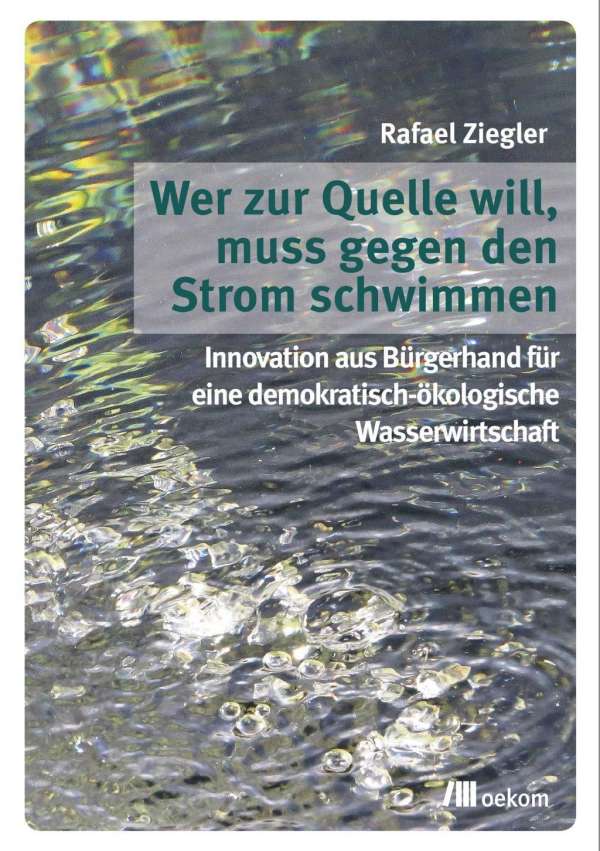Bücher
An Introduction To Social Entrepreneurship - Voices, Preconditions, Contexts
Ziegler, Rafael (Hrsg.): An Introduction To Social Entrepreneurship - Voices, Preconditions, Contexts, Edward Elgar, 2009 Hardcover, 2011 Paperback
'The book is a welcome and timely contribution to improving the understanding of social entrepreneurship and the work of social entrepreneurs. The text provides an excellent critical analysis of the dominant economic discourse surrounding social entrepreneurship.' - Bob Doherty, International Journal of Entrepreneurial Behaviour and Research.
Contributors: P. Albers, R. Boddice, H. Friebe, P. Grenier, D. Hjorth, E. Illouz, J. Korn, M. Kravcik, J. Mair, C. Seelos, K. Stanowski, R. Swedberg, I.B. Vasi, R. Ziegler.

Social Entrepreneurship In The Water Sector. Getting Things Done Sustainably
Ziegler, Rafael; Partzsch, Lena; Gebauer, Jana; Henkel, Marianne; Lodemann, Justus; Mohaupt, Franziska. Social Entrepreneurship In The Water Sector. Getting Things Done Sustainably, Cheltenham: Edward Elgar. Leseprobe.
There are few sectors where ‘getting things done sustainably’ is as important as it is for the water sector. From drinking water and sanitation to water use in agriculture, industry, and ecosystems, Rafael Ziegler and his co-authors investigate the contribution of social entrepreneurship to the sustainable use of water. In doing so, they critically discuss the ethics and politics of new innovations, with the emphasis on ideas changing heads rather than money changing hands.
By bringing together questions from ecology, ethics, management, and political science and drawing on research in close collaboration with practitioners across the world, the approach taken is both inter- and trans-disciplinary. The result will be of significant interest to researchers and practitioners in social entrepreneurship and social innovation, as well as in water and sustainability politics.
Critical acclaim:
''This book makes a breakthrough. Yes, there are almost no other sectors where “getting things done sustainably” is as important as it is for the water sector. Let us work together to sustain blue gold and blue Earth.’
-International Journal of Information Systems and Social Change
‘Inspiration for water professionals and social entrepreneurs. Amidst the rapidly expanding body of research on water policy, on one hand, and social entrepreneurship on the other, this book offers badly needed inspiration to both. To water development professionals, the inspiration is about process and method: There is an alternative to bureaucratic state-sponsored development initiatives; progress can come through unexpected, creative initiatives from dynamic individuals. To the cheerleaders and investors of social entrepreneurship, the message is about environmental sustainability: The viability of Nature, and specifically water ecosystems, is a fundamental social priority as well as an environmental one.’ GAIA – Ecological Perspectives for Science and Society
‘So often environmental protection is neglected in the social entrepreneurship literature, even though the environmental movement has a lot to offer in terms of empirical and theoretical developments. This book makes a hugely important contribution to filling that gap, lending weight to social innovation theory and providing a good case-study resource. The book bridges the gap between social and environmental outcomes.’ (Tim Curtis, The University of Northampton, UK)

Global Water Ethics
Ziegler, Rafael, and David Groenfeldt, eds. 2017. Global water ethics: Towards a global ethics charter. New York: Routledge.
Scholarly interest in water ethics is increasing, motivated by the urgency of climate change, water scarcity, privatization and conflicts over water resources. Water ethics can provide both conceptual perspectives and practical methodologies for identifying outcomes which are environmentally sustainable and socially just. This book assesses the implications of ongoing research in framing a new discipline of water ethics in practice.
Contributions consider the difficult ethical and epistemological questions of water ethics in a global context, as well as offering local, empirical perspectives. Case study chapters focus on a range of countries including Canada, China, Germany, India, South Africa and the USA. The respective insights are brought together in the final section concerning the practical project of a universal water ethics charter, alongside theoretical questions about the legitimacy of a global water ethics.
Overall the book provides a stimulating examination of water ethics in theory and practice, relevant to academics and professionals in the fields of water resource management and governance, environmental ethics, geography, law and political science.
Zum Inhaltsverzeichnis.

Wer zur Quelle will, muss gegen den Strom schwimmen
Rafael Ziegler. Wer zur Quelle will, muss gegen den Strom schwimmen. Innovation aus Bürgerhand für eine demokratische-ökologische Wasserwirtschaft. München: oekom, 2017. Leseprobe
Es ist noch gar nicht so lange her, dass die Bürgerinnen und Bürger direkt in die eigene Wasserversorgung eingebunden waren. Heute ist das anderes. Ein Netzwerk von Bürgerinitiativen, Umweltschutzorganisationen und Stadtwerken – die Interessengemeinschaft kommunale Trinkwasserversorgung in Bayern – kämpft daher für Erhalt und Sanierung eigener Quellen und Brunnen, und für die dezentrale Klärung des Abwassers.
Der Philosoph Rafael Ziegler lässt uns an diesem kreativen Kampf ums Wasser teilhaben. Mittels Fallstudien dokumentiert er den Einsatz einer Generation für Demokratie und Naturschutz im Kontext technisch-ökonomischer und politischer Beherrschungstendenzen. So entsteht eine neue Perspektive auf Institutionen, Akteure und deren Vorstellungen von Wasser, mit dem Anspruch, selbstbestimmte Veränderungsprozesse zu stärken und Raum für Alternativen aufzuzeigen.
"Allen, die sich mit kommunaler Selbstverwaltung, mit sozialen Bewegungen und Wasser beschäftigen, möchte ich diese Lektüre wärmstens empfehlen", Buchrezension Christa Hecht, Allianz der öffentlichen Wasserwirtschaft.


